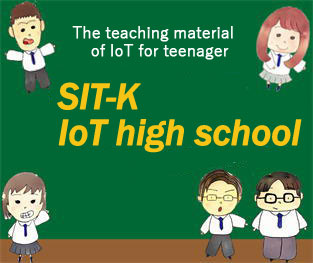Example of IoT -Medical care and IoT-
IoT is beginning to be introduced in medical and healthcare fields. In the medical field, there are problems such as approval, so health care products focusing on prevention and self-fitness management are developing more. What kind of cases are there and what will be the future? Let’s look at the following.
Healthcare field
Various products for physical condition management
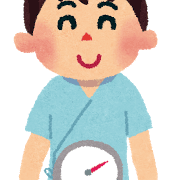 Various items for preventing lifestyle diseases and managing living are commercialized. I will give you some examples.
Various items for preventing lifestyle diseases and managing living are commercialized. I will give you some examples.
・The band which can measure sleep, step count, calorie consumption can be measured simply by attaching to the arm. The measured data is transferred to a dedicated application, you can easily check the consumption of calories, how long walked, how much sleep is deep, etc. on a graph.
・In the United States, the type band attached to the arm is very popular. You can wear it with the sense of accessory.
It records the number of steps, distance, calories burned, active time (minutes), hourly activities and rest time in a day, prompt notice message when momentum is insufficient, festive message when it is achieved.
・With the technical cooperation of Gunze and NEC, they invented the clothing type wearable system that we can measure biometric information such as attitude, calorie consumption (activity amount), and heart rate only by wearing, and can be worn on a daily basis as underwear.
This seems to understand the state of the body such as posture, distortion, habit. It is amazing!
Thus, like watches and accessories to wear on your arms, wear as inner, there are lots of products that you can feel free to health care just by wearing. In such a case, products using glasses are also on sale.
・ Sensor embedded in the wire of eyeglasses will sense the movement of the muscles around the eyes. By sending this information to the smartphone, you can check that your eyes are tired, drowsy and so on.
It seems to be preventing traffic accident.
Medical field
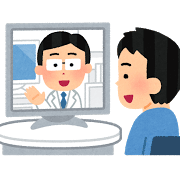 In the medical field and IoT, "telemedicine" becomes a hot topic.
In the medical field and IoT, "telemedicine" becomes a hot topic.
As the aging population progresses, the number of people who are difficult to visit is increasing. For patients who are difficult to visit, there is home healthcare where doctors visit doctors at their homes, but the number of physicians that can respond is limited. In such a situation, I think that it is very wonderful to be able to ask doctor's diagnosis and advice remotely using a smartphone or tablet. Let's look at the latest situation and future issues of such medical care and IoT.
Government evaluated remote medical practice online
At the "Future Investment Council" held on April 14, 2017, discussing the utilization of ICT in the medical and nursing care field, Prime Minister Shinzo Abe, if combined with on-site medical treatment and on-line remote medical treatment, He said that he will be able to receive continuous follow-up effectivelyand "I will firmly evaluate these new medical care at the next medical fee remuneration (FY 2018)".
※Source Prime Minister's Office> Prime Minister> Prime Minister> April 14, Heisei Investment Meeting of the future
Finally, telemedicine really starts to move.
One such telemedicine service is "Pocket Doctor".
Pocket Doctor is a smartphone application that allows you to talk to a doctor by video call, you can connect with a doctor anytime, anywhere.
In addition, through cooperation with health care equipment, you can share seven kinds of data, "blood pressure" "blood sugar level" "weight" "body temperature" "heart rate" "step count" "oxygen saturation" with the doctor.
I confirmed the website of "Pocket Doctor", and it was decided the fixed price as how many yen per consultation.
In the future it seems that applying health insurance of such services will become an issue?
![]() Our thinking Medical care and the future of IoT
Our thinking Medical care and the future of IoT
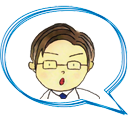 It is safe if there are clothes that the wearer reports to the hospital when he / she got a big injury from the outside.
It is safe if there are clothes that the wearer reports to the hospital when he / she got a big injury from the outside.
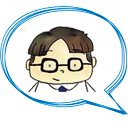 If the toothbrush that it finds tooth decays and tells it to a smartphone is invented, I think it is convenient.
If the toothbrush that it finds tooth decays and tells it to a smartphone is invented, I think it is convenient.
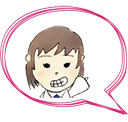 In the medical field, I think that the initial diagnosis of disease will be done by AI (artificial intelligence). I saw it on TV before.
In the medical field, I think that the initial diagnosis of disease will be done by AI (artificial intelligence). I saw it on TV before.
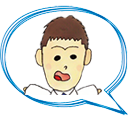 There seems to be pros and cons for AI's initial diagnosis. By the way, I heard that the Chinese artificial intelligence robot passed the national doctor qualification exam.
There seems to be pros and cons for AI's initial diagnosis. By the way, I heard that the Chinese artificial intelligence robot passed the national doctor qualification exam.
 Wow, amazing! But I want to see a human doctor.
Wow, amazing! But I want to see a human doctor.
・It will be active in the role of supporting physicians such as "to sense the situation of patients by sensors and analyze based on huge data".
・On the other hand, in the healthcare field, as many enterprises have already entered, it is expected that the number of products that will be commercialized will also be increasing rapidly.



